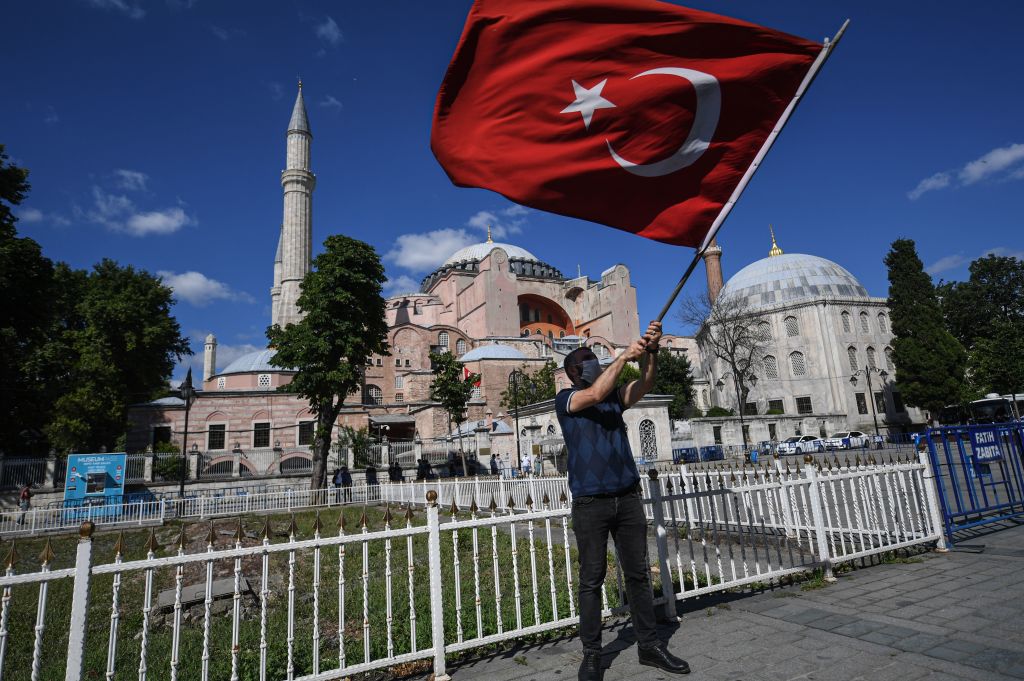Turkey’s strongman president Recep Tayyip Erdogan has announced that the Byzantine church of Hagia Sophia will become a mosque again, after 85 years as a museum and a designated Unesco World Heritage site. It will be the fifth church of the same name — all once symbols of the Eastern Roman Empire and priceless cultural treasures — to face the same fate in recent years.
Erdogan is facing political threats, from old allies like former prime minister Ahmet Davutoğlu, and from Turkey’s poor economy. He will be hoping that this radical move consolidates his support. It is not certain that it will work. Berk Esen, international relations professor at Ankara’s Bilkent university, said that ‘if it is finally turned into a mosque, it’s going to be seen as a victory for Erdogan and the Islamist movement… But I don’t think Erdogan will be able to expand his voter base.’
But we must look beyond Turkey’s domestic troubles and raw sentiment with a cool head, because, above all, the move signals what might prove to be era-defining shifts, right on Europe’s borders.

Get Britain's best politics newsletters
Register to get The Spectator's insight and opinion straight to your inbox. You can then read two free articles each week.
Already a subscriber? Log in






Comments
Join the debate for just £1 a month
Be part of the conversation with other Spectator readers by getting your first three months for £3.
UNLOCK ACCESS Just £1 a monthAlready a subscriber? Log in